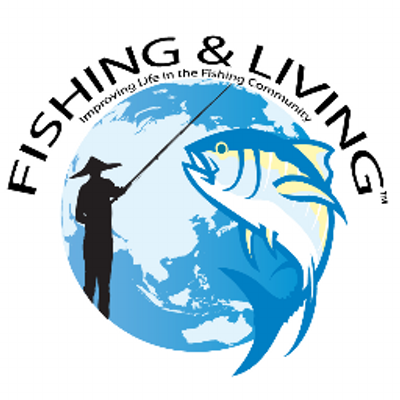May 2015, Jakarta, Indonesia
 During a 2-day workshop, stakeholders of the Indonesian Tuna Fishery Improvement Project (FIP) met to discuss progress and discuss necessary actions to achieve MSC certification by 2017. Participants to the workshop included the Ministry of Marine Affairs and Fisheries, NGOs such as MDPI, WWF Indonesia and the Sustainable Fisheries Partnership and Industry Partners such as Anova USA. Progress against the FIP Action Plan’s 50 milestones was evaluated, as part of the FIP annual review, by an independent consultant (Poseidon Marine Resource Management).
During a 2-day workshop, stakeholders of the Indonesian Tuna Fishery Improvement Project (FIP) met to discuss progress and discuss necessary actions to achieve MSC certification by 2017. Participants to the workshop included the Ministry of Marine Affairs and Fisheries, NGOs such as MDPI, WWF Indonesia and the Sustainable Fisheries Partnership and Industry Partners such as Anova USA. Progress against the FIP Action Plan’s 50 milestones was evaluated, as part of the FIP annual review, by an independent consultant (Poseidon Marine Resource Management).
The outcome of the review was a positive one with significant progress having been achieved in all three areas of improvements (Sustainable Fish Stock, Ecosystem Impacts and Fisheries Management). Key achievements for the handline tuna fishery include: increased coverage in data collection activities (port sampling & logbooks), data collection on Endangered, Threatened and Protected Species, Logbook awareness and industry engagement in data collection. The Handline fishery scored the highest with 0.77/1. A score of 0.8 is required to pass MSC certification.
The review also identified areas where work still needs to be done.
Harvest Strategy and Harvest Control Rules
A priority that concerns all tuna fisheries in Indonesia is to define a Harvest Strategy (HS) and Harvest Control Rules (HCR), both at the national and regional levels. These should be developed for all gears and all tuna species in Indonesia, including Handline. National efforts towards achieving this key milestone in the FIP include a series of HCR workshops hosted by the Ministry of Marine Affairs and Fisheries (MMAF) gathering national and international experts. Two workshop have already taken place and the next one will be held on May 18th to 22nd, 2015. At the regional level, the WCPFC, at its 11th annual commission meeting agreed to set up a workplan to develop HCR and HS for all tuna species in the WCPO, by the end of 2015. These are very promising developments that will lead to the formulation of management rules and to sustainably manage Indonesian fisheries.
National Tuna Management Plan
Another key priority is to improve the National Tuna Management Plan (NTMP). The NTMP released in October 2014 defined strong objectives and activities that are in line with the MSC standard but lack specificity with regards to each gear and each species. The NTMP needs to define fishery specific objectives, clear verifiable outcomes and activities that can demonstrate progress. This must be supported by a stronger framework and schedule.
Strengthened IUU measures and Monitoring, Control and Surveillance (MCS)
As part of its strategy to combat Illegal, Unregulated and Unreported fishing, MMAF has put in place an IUU task force. This is likely to achieve significant progress however, this task force must focus its effort on known high-risk areas of non-compliance. In order to identify these high-risk areas, a risk assessment must be carried out for Indonesian tuna fisheries, assessing aspects such as levels of likelihood, consequences, risk ratings and current actions. Furthermore, monitoring, control and surveillance activities must be reported in order to identify current efforts and where improvements need to be focused. This risk assessment should be carried out by the fisheries enforcement agency (PSDKP). Based on this risk assessment and international agreements, a national IUU action plan should be formulated. Lastly, it is important to adopt a multi-stakeholder approach to MCS by involving all stakeholders affected by new management strategies. Currently, PSDKP does carry out annual socialization but now needs to report on compliance levels.
For small scale fisheries, POKMASWAS is the main framework for MCS measures. POKMASWAS a community based system to enforce fisheries management rules and is in place throughout Indonesia with over 1200 groups. Additionally, Data Management Committees have been formed in 4 provinces across Indonesia that gather various local stakeholders (Scientists, NGOs, government, industry and fishermen) to discuss management issues and formulate solutions at the local level.
Recent Posts
Helmets Distribution to Fishermen’s Children in Local Communities in Bali
We distributed helmets to all fishermen children in two local coastal communities in Bali. The main goal of this event […]
Read moreAnova FoodNominated for Award of Corporate Excellence (ACE) by Secretary Hillary Clinton
The Award for Corporate Excellence (ACE) is given annually by the U.S. State Department to American companies who exhibit good […]
Read moreSchool Children Awareness Programs in Awareness Lombok
June 2012 We hosted an event coinciding with World Ocean Day and Coral Triangle Day. The event was to raise […]
Read more